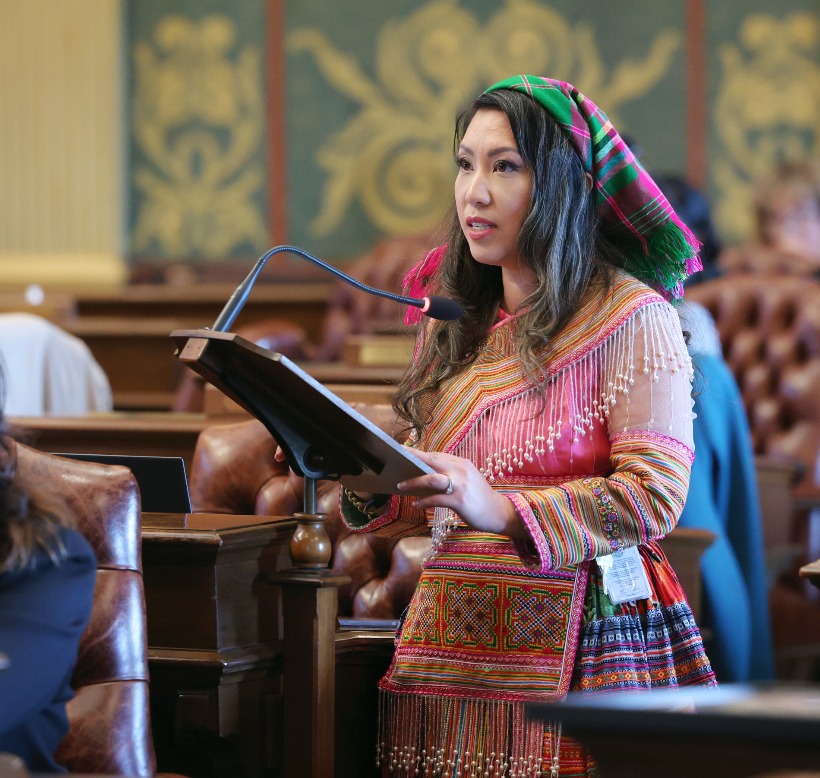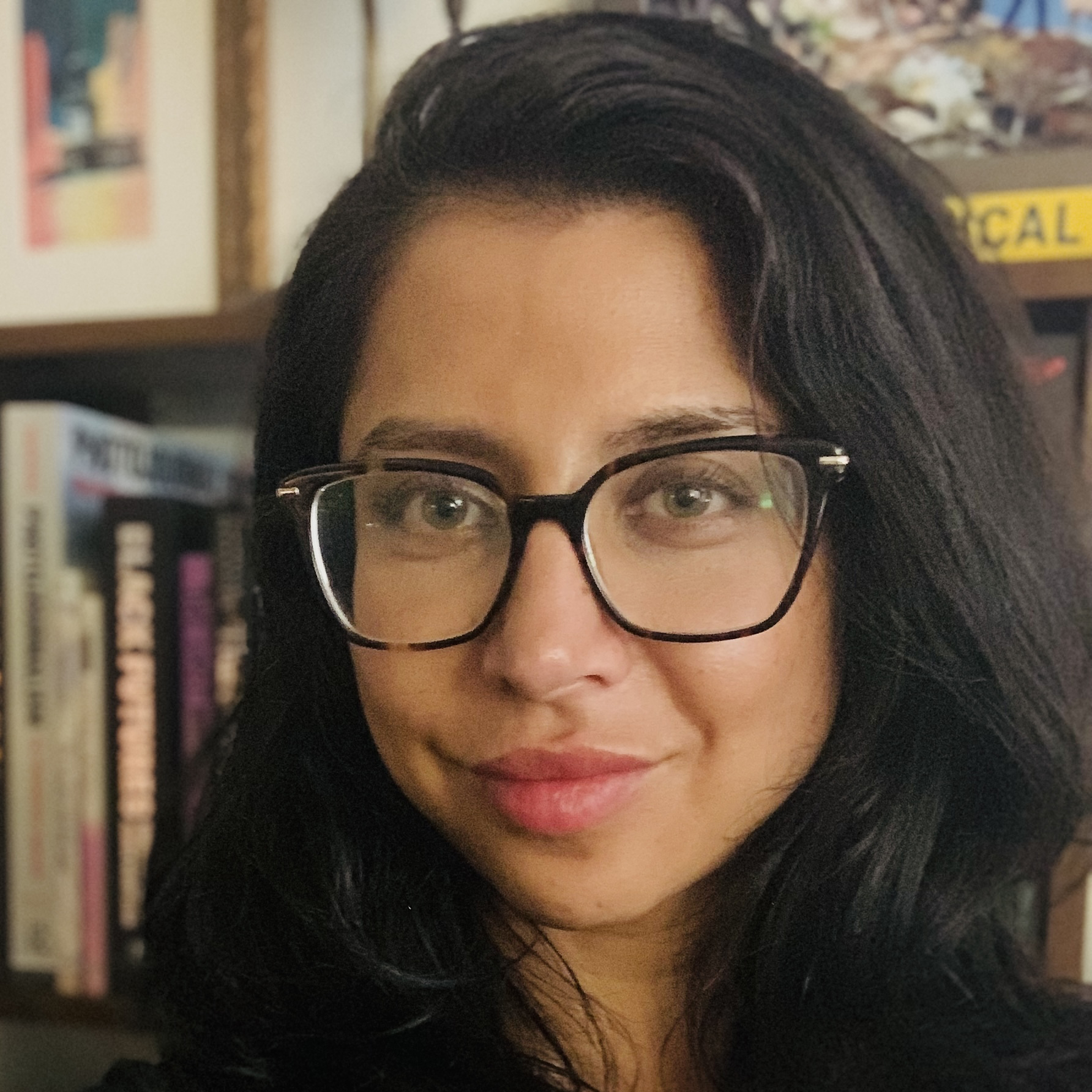The Metro: Rep. Mai Xiong, Michigan’s first Hmong legislator, says refugees were wrongly targeted
Robyn Vincent, The Metro August 6, 2025ICE’s detention of Hmong refugees in Detroit has left local families confused and fearful. Rep. Mai Xiong, drawing from her own refugee experience, discusses the urgent need for clarity and action.

Donned in traditional Hmong Vietnamese clothing, Michigan State Rep. Mai Xiong addresses the House about a resolution honoring Hmong Special Guerilla Unit Veterans on May 14. The day commemorates Hmong combat soldiers who served under the direction of the U.S. Military and clandestine forces from 1961 to 1975, in the Secret War of Laos during the Vietnam War.
State Representative Mai Xiong wants answers about why ICE detained Hmong refugees in Detroit.
She says the people detained are not undocumented immigrants — they are refugees who entered the U.S. legally. The incident has sparked fear and confusion in Southeast Michigan’s Hmong community, prompting calls for accountability.
This issue hits home for Xiong, Michigan’s first Hmong American legislator and a former refugee herself. She represents Warren in Michigan’s 13th House District.
She joined The Metro’s Robyn Vincent to explain what she knows and the lingering questions that remain.
The Metro contacted Detroit’s ICE field office and the Detroit Police Department for details. Detroit Police said they did not know about the detentions. ICE has not responded.
Subscribe to The Metro on Apple Podcasts, Spotify, NPR.org or wherever you get your podcasts.
Listen to The Metro weekdays from 10 a.m. to noon ET on 101.9 FM and streaming on demand.
More stories from The Metro
Authors
-
 Robyn Vincent is the co-host of The Metro on WDET. She is an award-winning journalist, a lifelong listener of WDET, and a graduate of Wayne State University, where she studied journalism. Before returning home to Detroit, she was a reporter, producer, editor, and executive producer for NPR stations in the Mountain West, including her favorite Western station, KUNC. She received a national fellowship from Investigative Reporters and Editors for her investigative work that probed the unchecked power of sheriffs in Colorado. She was also the editor-in-chief of an alternative weekly newspaper in Wyoming, leading the paper to win its first national award for a series she directed tracing one reporter’s experience living and working with Syrian refugees.
Robyn Vincent is the co-host of The Metro on WDET. She is an award-winning journalist, a lifelong listener of WDET, and a graduate of Wayne State University, where she studied journalism. Before returning home to Detroit, she was a reporter, producer, editor, and executive producer for NPR stations in the Mountain West, including her favorite Western station, KUNC. She received a national fellowship from Investigative Reporters and Editors for her investigative work that probed the unchecked power of sheriffs in Colorado. She was also the editor-in-chief of an alternative weekly newspaper in Wyoming, leading the paper to win its first national award for a series she directed tracing one reporter’s experience living and working with Syrian refugees. -

